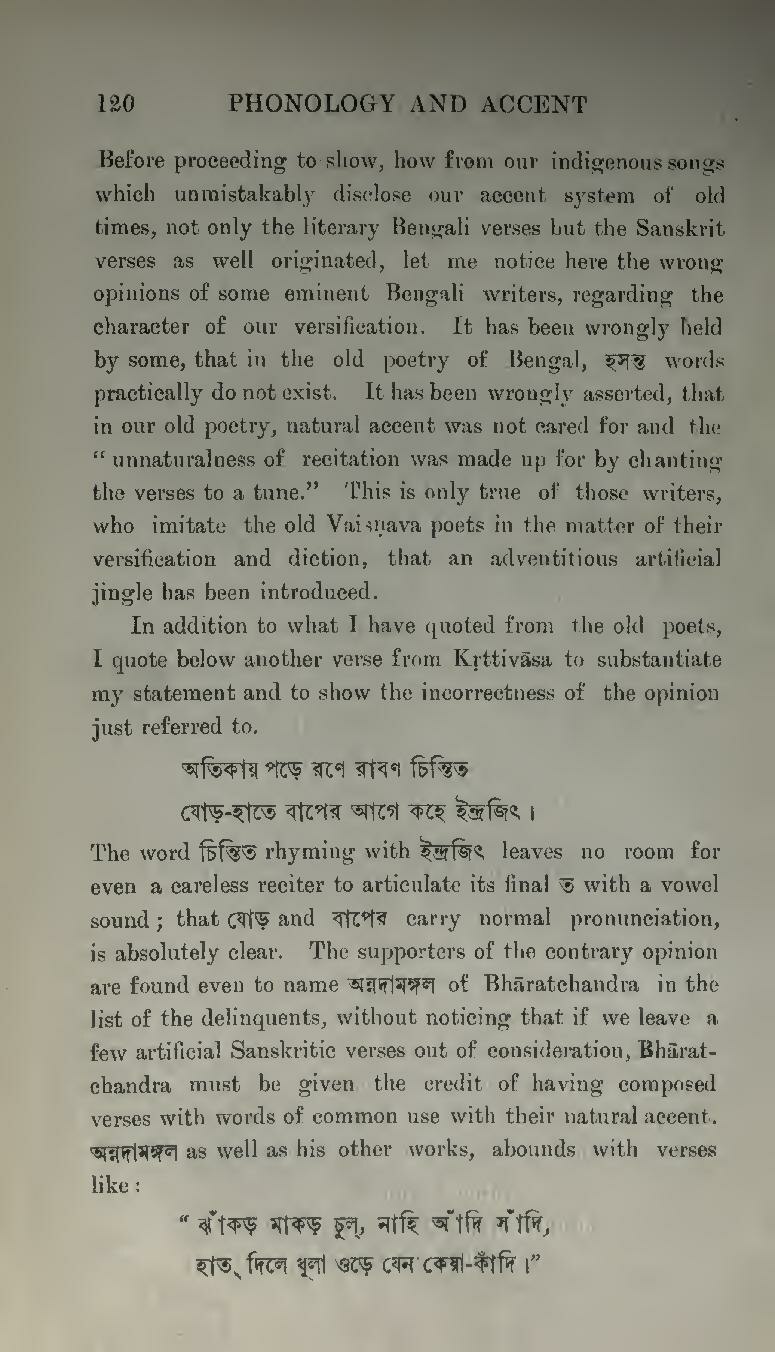Before proceeding to show, how from our indigenous songs which unmistakably disclose our accent system of old times, not only the literary Bengali verses but the Sanskrit verses as well originated, let me notice here the wrong opinions of some eminent Bengali writers, regarding the character of our versification. It has been wrongly held by some, that in the old poetry of Bengal, হসন্ত words practically do not exist. It has been wrongly asserted, that in our old poetry, natural accent was not cared for and the "unnaturalness of recitation was made up for by chanting the verses to a tune." This is only true of those writers, who imitate the old Vaiṣṇava poets in the matter of their versification and diction, that an adventitious artificial jingle has been introduced.
In addition to what I have quoted from the old poets, I quote below another verse from Kṛttivāsa to substantiate my statement and to show the incorrectness of the opinion just referred to.
অতিকায় পড়ে রণে রাবণ চিন্তিত
যোড়-হাতে বাপের আগে কহে ইন্দ্রজিৎ।
The word চিন্তিত rhyming with ইন্দ্রজিৎ leaves no room for even a careless reciter to articulate its final ত with a vowel sound; that যোড় and বাপের carry normal pronunciation, is absolutely clear. The supporters of the contrary opinion are found even to name অন্নদামঙ্গল of Bhāratchandra in the list of the delinquents, without noticing that if we leave a few artificial Sanskritic verses out of consideration, Bhāratchandra must be given the credit of having composed verses with words of common use with their natural accent. অন্নদামঙ্গল as well as his other works, abounds with verses like:
"ঝাঁকড় মাকড় চুল্, নাহি আঁদি সাঁদি,
হাত্ দিলে ধূলা ওড়ে যেন কেয়া-কাঁদি।"
